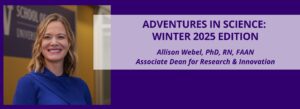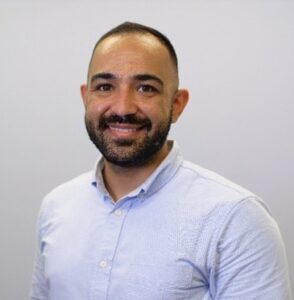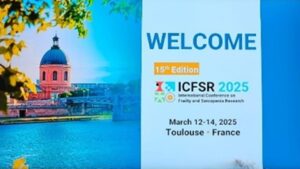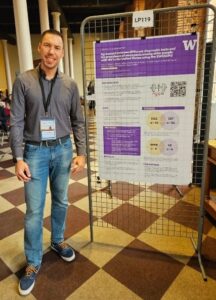
Science knows no country, because knowledge belongs to humanity, and is the torch which illuminates the world. -Louis Pasteur
All around the country, and indeed, the world, universities are stopping research-related travel that is charged to their operating budgets. Maslow’s hierarchy, history, and common sense indicate that this is both wise and fitting. Yet, the scientific process – observation, experimentation, analysis, reason, and dissemination- is the only method by which humankind can learn truth; universal truths that help propel progress forward. As we have previously shared, the ability of UW School of Nursing scientists to disseminate and deliberate their research broadly is critical for sharing, improving and reaping the benefits of the knowledge created by our community. We are fortunate and grateful to have philanthropically supported gifts to support our community in this quest for scientific progress. This week, two of our community members who received ONR&I’s travel to exchange their research with the global community share the impact of their award.

Substance use and addition continue to be leading concerns for Washingtonians but Assistant Professor, Omeid Heidari, is determined to develop compassionate, effective, and pragmatic nurse-led interventions to reduce overdoses in our community. In October 2024, he utilized the ONR&I travel funds to attend the Addiction Health Services Research Conference, a pivotal event that helped to advance his scientific endeavors. At the conference, Dr. Heidari presented groundbreaking findings on overdose risk environments, fostering invaluable connections with colleagues and collaborators nationwide. Additionally, he had the opportunity to meet in person with the CHERISH Mentee group, a national cohort of addiction health services researchers to which he belongs. This experience underscored the importance of health services and policy researchers engaging with policymakers at all levels—local, state, and federal. Omeid encourages all members of the UW School of Nursing community to persist in advocating with robust evidence and compelling patient-centered narratives to highlight the critical work they perform.

Healthy aging is crucial for maintaining quality of life as we grow older. Assistant Professor, Vitor Oliveira was able to leverage the ONR&I travel funds to attend the 15th International Conference on Frailty and Sarcopenia Research in Toulouse, France, from March 12-14, 2025. This event was a fantastic chance for Dr. Oliveira to meet leading researchers from around the world who study muscle loss, frailty, and healthy aging. He learned about exciting new studies that track thousands of people over decades to better understand how we age.

Dr. Oliveira wants the UW School of Nursing community to know we are currently in the United Nations Decade of Healthy Ageing (2021–2030). This catalytic global initiative aims to improve the lives of older adults, their families, and their communities. Everyone—from governments to private companies, and even the media—is encouraged to collectively work together to achieve these goals. He highlights that while researchers are still studying medications for muscle loss and frailty, staying active and eating well are the best ways to prevent and treat these conditions. For more details on Dr. Oliveira’s research, check out his recent editorial in the Journal of Gerontological Nursing.
Universities, and their research enterprise, are at a crossroads right now and to many the future of that enterprise feels uncertain. But what is certain is that our shared curiosity, and our drive to improve the world around us using the tools and discipline of science, have outlasted economic downturns, political upheaval, plagues and pandemics, and wholescale institutional change. For millennia our noble and natural desire to learn and understand ourselves and the world around us – and to share that knowledge across geopolitical borders- has withstood forces unimaginable to most of us today. That quest, and the knowledge we have gained along the way, has helped us to become among the longest living and healthiest people in human history. Whether their scientific journey takes them to Whatcom, Walla Walla, Wenatchee, Baltimore or Toulouse, we in the Office for Nursing Research & Innovation will continue to support our investigators in their inquiry into improving human health.
~Allison R. Webel, PhD, RN, FAAN